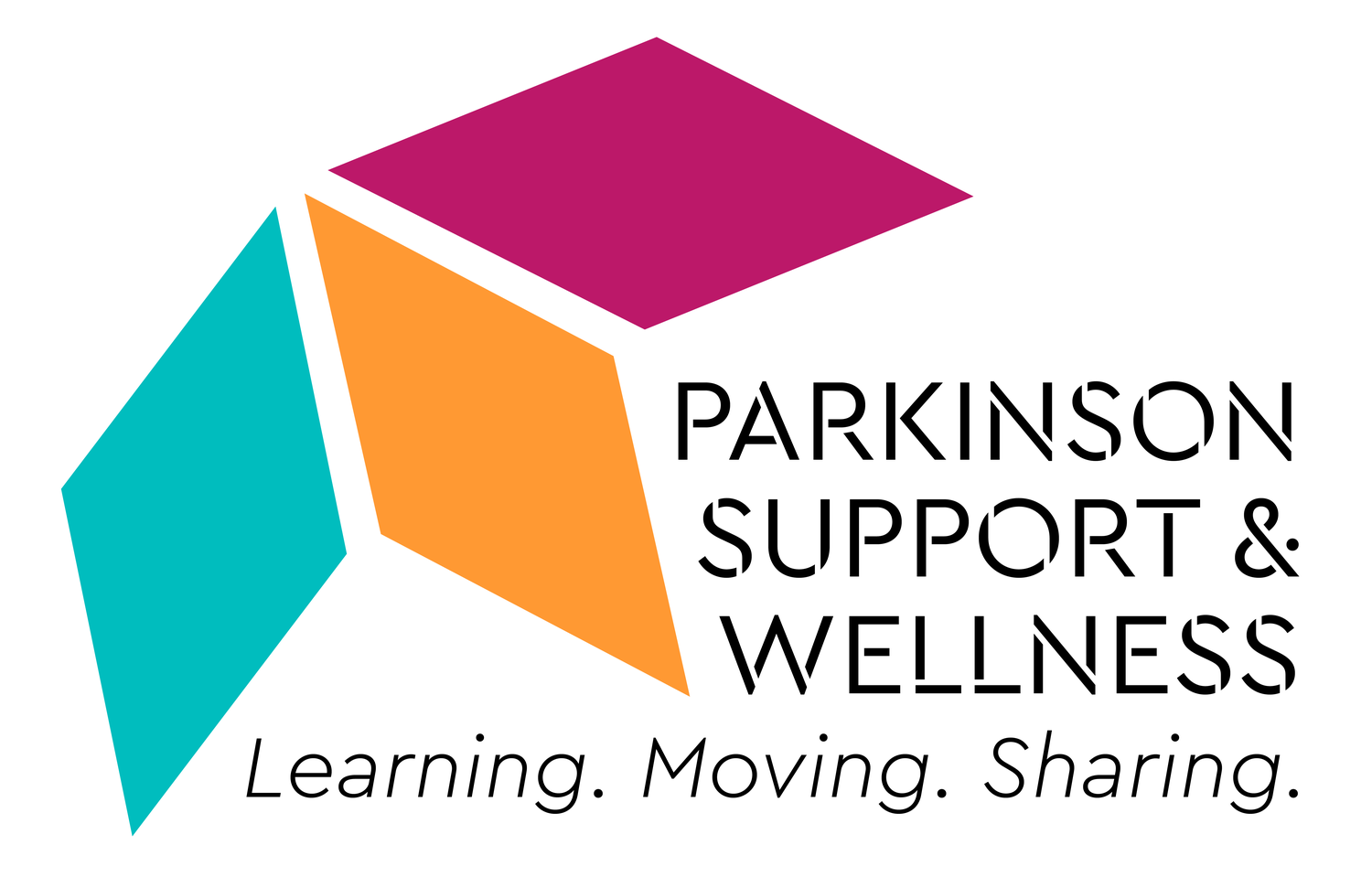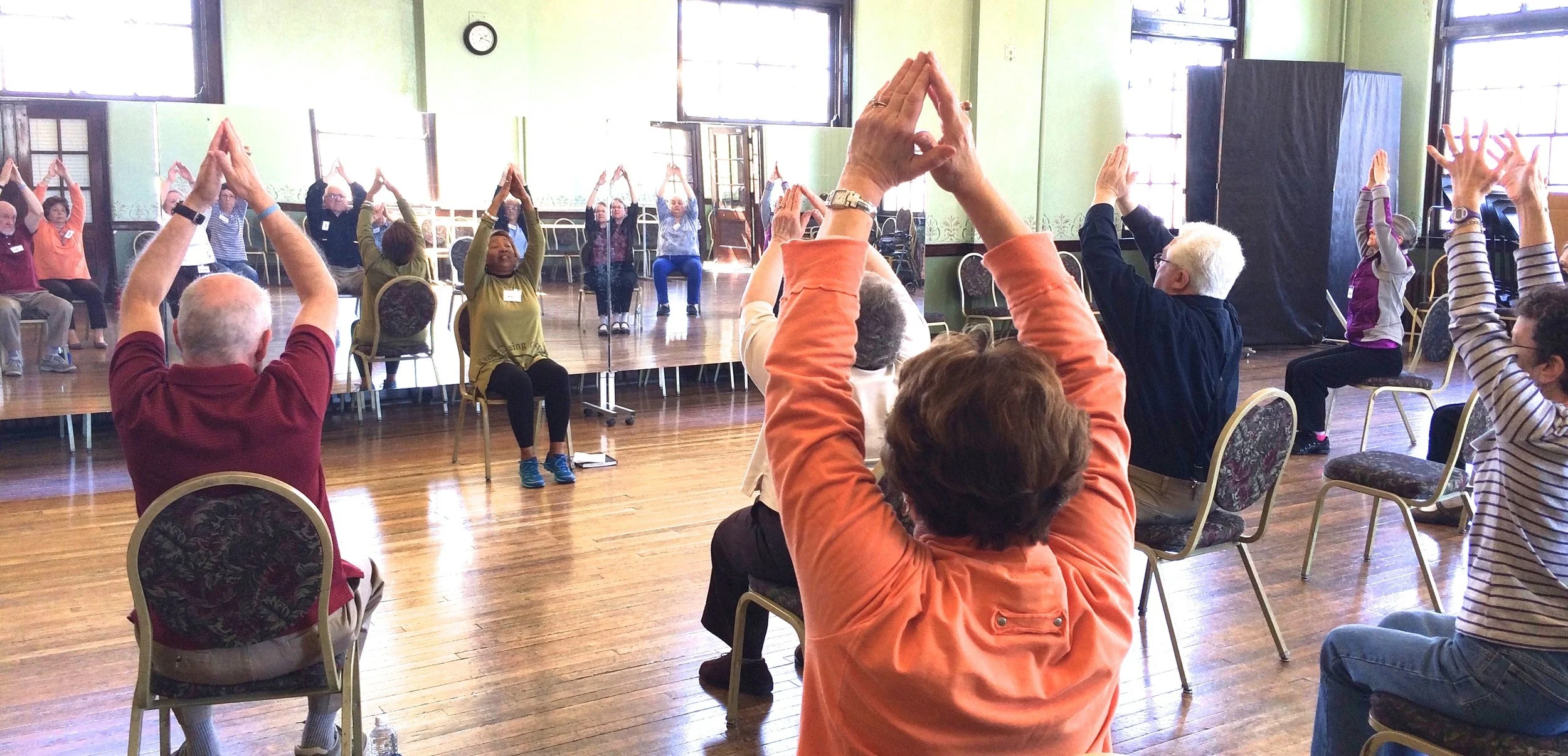Parkinson Support and Wellness and Cincinnati Ballet are teaming up to celebrate the creativity of Persons with Parkinson’s! Cincinnati Ballet’s Margaret & Michael Valentine Center for Dance will host an afternoon of live performances, hands-on activities, and an art exhibit, —all from artists with Parkinson’s. Whether you are creative or just interested in connecting to the arts, this FREE event has something for everyone!
Your Social Life
The human need for companionship and connection to others is as basic as the need for food and water. Feeling lonely is bad for not only your mental health, but for your physical health. If you are living with PD, you are even more at risk for feeling lonely and disconnected, but here are a few ways to combat that.
Exercise Focus: NeuroFit Gym
Continuing our look at exercise providers in the Greater Cincinnati area, we turn now to the Neurofit Gym, a non-profit organization in Northern Cincinnati specializing in helping those with neurological disorders, including Parkinson's Disease. Through exercise, education, community, and connection, their mission is to help these individuals live healthier and more independent lives.
Breakthrough in Parkinson’s research
Recently the Parkinson’s community has been buzzing with news of a research breakthrough. It was announced in the Michael J. Fox Foundation newsletter of Spring/Summer 2023 that a new tool (called the alpha-synuclein seeding amplification assay) has been discovered that “can detect pathology in spinal fluid not only of people diagnosed with Parkinson’s, but also . . . [of those] at a high risk for developing it.”
Massage Therapy in PD
Sleep Revisited
Nearly a year ago I wrote an article that appeared on this blog on the topic of sleep and PD. The basics are still true – the fact that sleep is essential to reset your system, that eight hours is the recommended amount of sleep for all adults, and that disturbances in healthy sleep patterns are one of the most common non-motor symptoms of Parkinson’s disease.
Exercise Focus: Alpha Neuro Fitness
Another in our review of exercise opportunities in the Cincinnati area is Alpha Neuro Fitness (ANF) located at 800 E. Ross Ave. in St. Bernard (just off the Norwood Lateral). Owner and trainer Adam Magee began his work with PD patients in 2012 when, as an undergraduate majoring in Exercise Science at NKU, he worked as an intern with a research study at UC involving exercise for Parkinson’s and multitasking. He was so intrigued and wanted to do all he could to help the patients. Ten years later, he now has a Masters in Healthcare Administration and his own gym where he works with patients one-on-one.
Exercise Focus: foreverfitness
As part of our ongoing review of exercise programs available in our area, we turn this week to foreverfitness. This exercise organization was founded by Sarah Palmer, and she has a staff of four, all of whom are highly trained. (Several are physical therapists, all have PWR! Moves training and Sarah has a master’s in exercise physiology.)
Exercise Focus: NeuroRehab & Balance
Parkinson’s-specific exercise is very important in the treatment of this disorder, and one clinic in our area that works hard to provide opportunities for such exercise is Kettering Health’s NeuroRehab and Balance Center. Located in Centerville, just outside Dayton, the NR&BC offers classes of varying intensity (medium, high and mixed) each twice a week.
New Year's Resolutions
In the depths of the dark winter, we bring some light to our world when we celebrate the New Year. A traditional part of that celebration is the New Year’s resolution. Humans have been pledging to change their bad habits since the Babylonians vowed to pay off debts and return borrowed farm equipment some 4,000 years ago. (The custom of breaking those resolutions within several months is also an old one.) How can people living with Parkinson's disease make the most of New Year’s resolutions?
HAPPY HOLIDAYS with Parkinson’s disease
Would you like to dance?
It is well known that exercise is beneficial therapy for those living with Parkinson’s disease. But in recent years, more varied kinds of physical activity are beginning to be researched and proven to help as well, and one of the most highly touted is dance. There are hundreds of dance programs for those in the Parkinson’s community throughout the world, but the headquarters for PD dance worldwide is the Dance for PD program in Brooklyn, New York.
How does PD affect your taste buds? Part 2
One of the most common non-motor symptom of Parkinson’s disease – affecting an estimated 90% of PWPs – is a reduction in (or complete absence of) a sense of smell. The reduction is called “hyposmia” and the absence is “anosmia.” Often this symptom predates many others. This loss has the potential to significantly affect our quality of life. The inability to accurately detect odors in one’s environment can be inconvenient (if you can’t tell whether your clothes or your body parts need cleaning and deodorizing) or even dangerous (if you cannot smell a fire or a gas leak.) But a related loss that may perhaps have even more of an impact on one’s quality of life is a reduction in the sense of taste.
FREE Parkinson's Exercise
The Coronavirus pandemic has required that we all stay at home a lot. And it is hard to participate in a group activity such as an exercise class in your own home. But thanks to the internet, the world can seem a lot smaller than it actually is, and that closeness can make exercising at home a real option. There are a number of Parkinson’s-specific exercise instructors who charge for their online services (as is appropriate if they are not separately funded). But since people with PD have limited funds, I am going to mention only those that are free.
PWR Moves Recommended by PDF
So you have heard about the Parkinson Foundation recommendations for exercise. You know you need to do Parkinson-specific exercise. But how do you know which exercise class offers a PD-specific workout? Now the Parkinson Foundation (a national organization whose mission is to improve care for people with Parkinson’s and to advance research toward a cure) has started its program to accredit programs that train exercise instructors in PD-specific methods. Of the first three programs that achieved this accreditation, two are available in our area.
Sleep and Parkinson's
Sleep is essential for all people. The recommended amount of sleep for adults is eight hours each night. A pattern of good sleep can improve psychological, emotional and cognitive function. It can also strengthen the immune system and regulate appetite and blood pressure and more. It is the ultimate system reset. But disturbances in healthy sleep patterns are one of the most common non-motor symptoms of Parkinson’s disease. So what can you do about your sleep difficulties?
Three Books by a Famous Person with Parkinson’s
We may have been diagnosed with Parkinson’s disease, but in some ways we are lucky. The Parkinson’s community is lucky that a quite young, quite handsome, and quite well-known actor was also diagnosed with the same disorder and that he has been willing to lend his name, his fame, and his money to the cause of research for Parkinson’s disease.
Cincinnati Area PD Exercise Offerings
Exercise is so important for those with PD. "...most PD experts now agree that exercise is as beneficial for PD as any medication they can prescribe." Parkinson Support & Wellness Executive Director Chris Gaffney and Assistant Director Julia Burks have a conversation over Zoom with Elizabeth Grover, a Cincinnati PD exercise connoisseur.
My Parkinson Story | Elizabeth Grover - Part 2
In 1997 I noticed that, despite being right handed, I was using my left hand only to shampoo my hair and drink beverages. Hmmm, that’s odd. At the end of the year I made a New Year’s resolution to do something about it, and after my primary care doctor ruled out a brain tumor with an MRI, I was diagnosed by a neurologist with Parkinson’s in March of 1998. Since both of my maternal grandparents had PD, I thought I knew what I was dealing with.




















